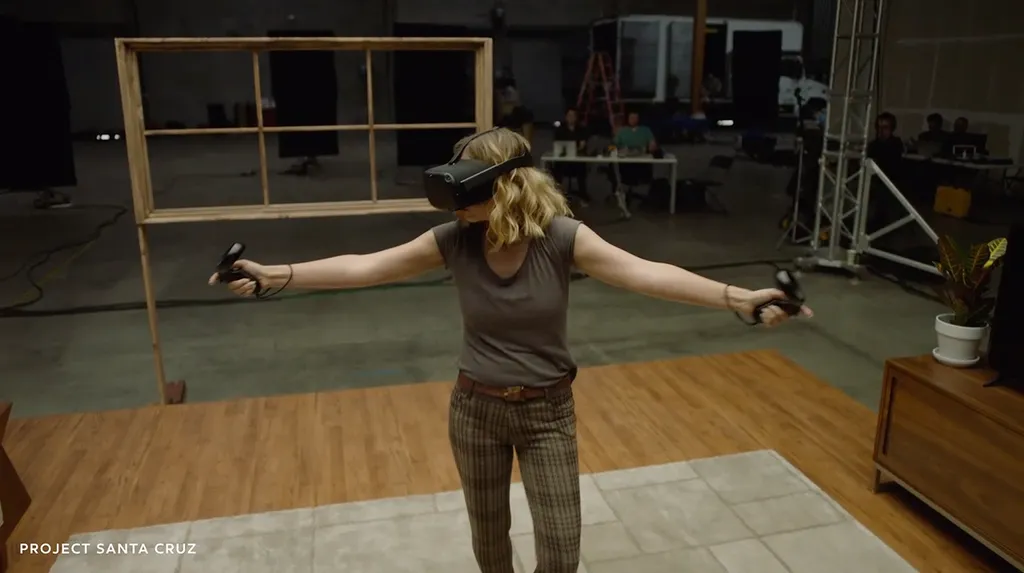Standalone VR headsets are quickly becoming a big new hope for the VR industry, but with so many entries offering different feature sets, it’s hard to know which will be the right device for you. Oculus’ Jason Rubin, though, thinks the company’s upcoming codename Santa Cruz device is best comparable to the Rift.
Speaking to Glixel (via Rolling Stone), Rubin labeled the standalone device as “in essence, an all-in-one mobile Rift.”
It may seem like a small quote on a literal level, but it’s got big implications for the role Oculus sees Santa Cruz playing in the future. The headset, currently in the prototype stages, is Oculus’ first device to offer inside-out tracking, meaning the six degrees of freedom (6DOF) users experience with the headset on is achieved not through external sensors looking at the headset as with the Rift but instead devices fitted to the kit itself. You can see similar technology at work in Microsoft’s new Windows-based VR headsets, released last month.
At Oculus Connect 4 in October, Oculus also introduced a pair of 6DOF motion controllers to complement Santa Cruz, which look similar to its Touch controllers for Rift. Again, these controllers are tracked using the headset itself.
You can see how the combination of 6DOF tracking and controllers would make Santa Cruz a mobile Rift, though we’re still eager to find out exactly what kind of power the headset will be packing when it finally ships. Will the device offer power comparable to the most recent smartphones that work with headsets like Daydream View and Gear VR? Or is Oculus hoping to push the boundaries a little further than current mobile VR devices? We’ll likely get a good idea when the company starts shipping out developer kits at some point in 2018.
That’s just one part of the Santa Cruz puzzle. We’re also eager to find out what kind of content is coming to the device and if Oculus will give it the same kind of attention it’s given the Rift in 2017 with an exclusive game each month. Then there’s the question of how it will stack up to Oculus Go, the company’s other soon-to-launch standalone that’s far more comparable to Gear VR.


























